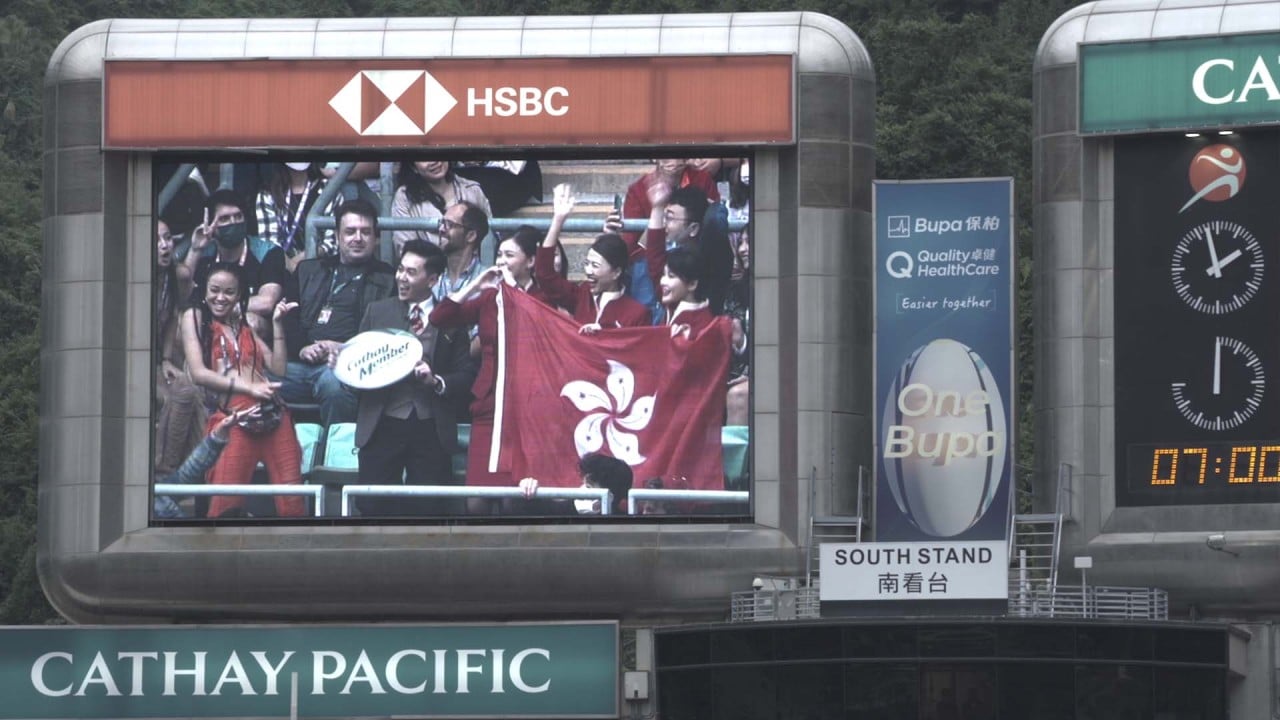
Hong Kong gives arrivals freer rein to move around in latest relaxation of Covid travel curbs
- Inbound travellers subject to government’s ‘0+3’ entry scheme will be allowed to visit venues offering mask-on activities from November 17
- Health undersecretary cites stable situation at city’s public hospitals as driving force behind latest easing of entry restrictions.
Hong Kong will further ease Covid-19 restrictions next week to allow visitors upon arrival into venues such as theme parks, museums and exhibition halls, under a relaxation to vaccine pass requirements that will also benefit residents.
The government decided to adopt the new rules, which were based on the lower transmission risk in places where masks were worn, given public hospitals had returned to full service, the daily number of infections had stabilised and imported cases only slightly increased following previous rule relaxations, Undersecretary for Health Libby Lee Ha-yun on Thursday said.
“[People who conduct] mask-off activities such as eating and drinking have higher chances of being infected. We believe that it poses higher risks of transmission. In other words, mask-on activities have lower risks,” she told a press conference.
“Therefore, we have noticed there is room for a slight relaxation in places where masks will be kept on to allow convenience for residents.”
Covid-19 in Hong Kong still a ‘public health emergency’, minister warns
Under the city’s “0+3” travel scheme, inbound arrivals are required to undergo a three-day medical surveillance period with limited freedom of movement in the city.
Travellers are issued an amber health code and barred from entering venues that require vaccine checks, such as eateries and nightlife spots, but can enter shopping malls, department stores and supermarkets, as well as attend work and school.
Starting from next Thursday, inbound travellers will be allowed to access premises that offer mask-on activities, such theme parks, museums, exhibition halls, mahjong parlours, hair salons and places of worship. But areas where eating is allowed will be off-limits to them
But the new policy will allow anyone with an amber code to enter premises that allow mask-on activities by scanning the venue’s QR code using the “Leave Home Safe” risk-exposure app. Staff at these locations will no longer require patrons to show their vaccination record.

Lee’s announcement followed Hong Kong’s recent hosting of several major international events, during which the government exempted overseas participants from the current entry scheme and allowed them to visit certain premises.
But the health undersecretary denied that the policy adjustment was connected to the recent mega events, describing any such characterisation by the public as “unfortunate”.
“It is a balance between the risks that we have and the measures at hand to control the risks. The whole relaxation is based on this balance,” she said.
Lee said daily infection figures were stable and hovering at around 4,000 to 5,000, while the number of deaths was less than 20 per day. She added that the daily average for imported cases had increased by 10 per cent, citing a rise in arrivals to Hong Kong.
Health authorities on Thursday logged 5,697 coronavirus infections, 495 of which were imported, and nine more deaths. The city’s overall tally stands at 1,968,307 cases and 10,501 related fatalities.
“We are happy to hear that the services at the Hospital Authority are operating as normal. Under this premise and after careful consideration, we have decided to ease our anti-epidemic measures,” she said.
But the undersecretary also said authorities would continue to uphold Hong Kong’s mask mandate, explaining that it was a “very key protection” against the virus, alongside vaccination.
“For the mask mandate, at the current moment, it is not a consideration [for the government] to remove it. We will still have the mask mandate until the control of the pandemic or control of the disease is much better,” she said.

As part of its coming adjustments to anti-epidemic curbs, the government also announced it would reopen the city’s campsites from next Thursday. Fans at outdoor sports venues would also be allowed to eat and drink, including at Hong Kong’s two racecourses.
Authorities said they would drop distancing requirements for gym-goers attending classes that consisted of 12 people or more, with the 1.5-metre (5 feet) spacing rule to apply to groups rather than individuals.
The tourism industry welcomed the changes, but international commerce groups warned that it was not enough to encourage business and leisure travellers to visit Hong Kong.
Inaki Amate, chairman of the European Chamber of Commerce in Hong Kong, said the rules could still create confusion for overseas travellers, but the easing would be a positive step for residents, who would have greater freedom of movement again.
Group tour visitors to Hong Kong can soon enter restaurants, public places
Discussing the effectiveness of the city’s vaccine pass scheme, Dr Leung Chi-chiu said it had not played a substantial role in preventing virus transmission, regardless of whether venues actively or passively required patrons to present their health code.
However, the respiratory medicine expert said the adjustment to the social-distancing and travel curbs was a “small” but “correct” step in the right direction.
“[The government] needs to replace the vaccine pass with more targeted measures towards the very young and very old. [There was] no material progress with the vaccine pass in promoting their vaccination for months,” he said.
Leung also advised authorities to further relax the rules requiring patrons to scan QR codes using the “Leave Home Safe” app when entering venues, since little contract tracing work was being done at present.
The government has recently made several adjustments to the city’s social-distancing and travel rules, with authorities last week axing restrictions that imposed closing hours on restaurants and bars, while also reopening barbecue sites.
In October, Hong Kong increased the number of patrons allowed at each restaurant table from eight to 12 and lifted bans on live performances and dancing at catering premises and hotels.




